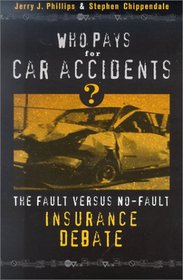Search -
Who Pays for Car Accidents?: The Fault Versus No-Fault Insurance Debate (Controversies in Public Policy)
Who Pays for Car Accidents The Fault Versus No-Fault Insurance Debate - Controversies in Public Policy
Author:
The U.S. Supreme Court, far from being above the political fray, has consistently made decisions that affect the electorate in profound ways?Bush v. Gore being but one example. This revised edition of the first over-all consideration of the role of the court in the electoral process is provocative and eye opening. Of the first edition, CHOICE... more »
Author:
The U.S. Supreme Court, far from being above the political fray, has consistently made decisions that affect the electorate in profound ways?Bush v. Gore being but one example. This revised edition of the first over-all consideration of the role of the court in the electoral process is provocative and eye opening. Of the first edition, CHOICE... more »
ISBN-13: 9780878408870
ISBN-10: 0878408878
Pages: 129
Rating: ?
ISBN-10: 0878408878
Pages: 129
Rating: ?
0 stars, based on 0 rating
Publisher: Georgetown University Press
Book Type: Paperback
Members Wishing: 0
Reviews: Amazon | Write a Review
Book Type: Paperback
Members Wishing: 0
Reviews: Amazon | Write a Review
Genres:
- Business & Money >> Industries >> Insurance >> Liability
- Nonfiction >> Automotive >> Insurance
- Nonfiction >> Automotive >> Traffic & Safety
- Nonfiction >> Current Events >> Poverty >> Social Services & Welfare
- Law >> General
- Law >> Business >> Insurance Law
- Engineering & Transportation >> Law >> Business >> Insurance Law




